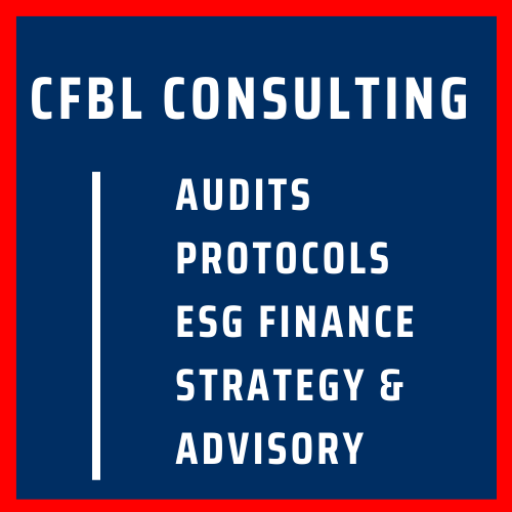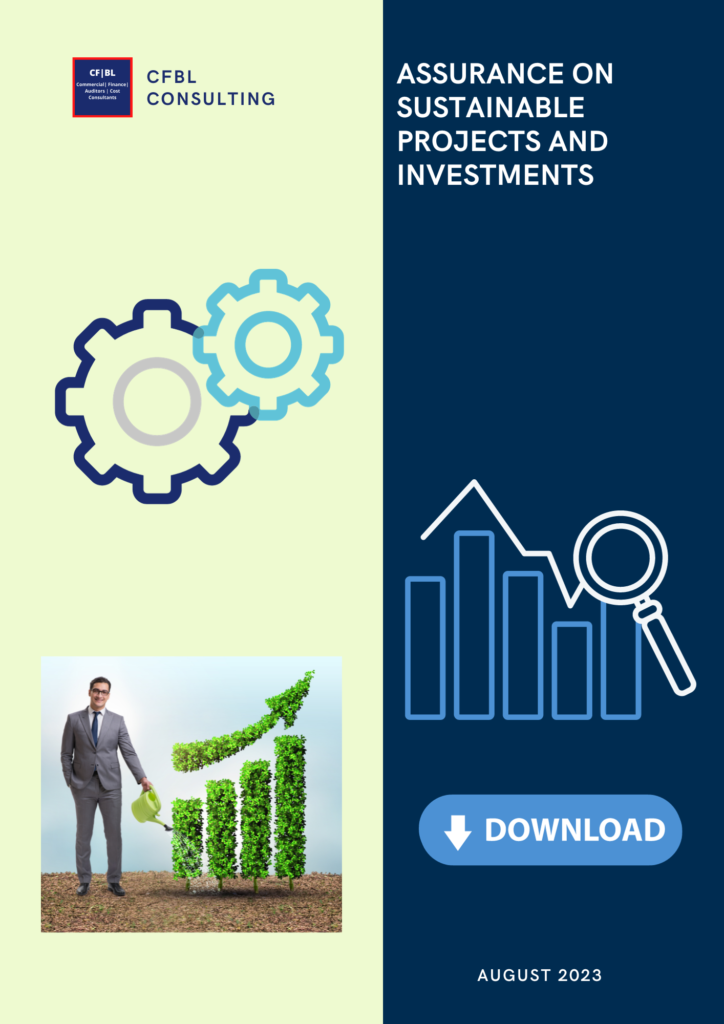ESG Impact
The current financial landscape is changing rapidly therefore business models need to evolve quickly. The propagating demand for financial and non-financial data among corporates – from investors, to stakeholders, financial markets and other regulators is creating a buzz in the business world. The ever-rising need for social responsibility and sustainability is demanding better quality financial and non-financial data from corporates and businesses.
The main area of focus is increased spotlight on non-financial information like ESG factors (environmental, social, and governance) which can help investors identify upcoming risks and opportunities early on. This may be related to global issues like climate change, gender inequality and opportunities for global partnerships that can combat sustainability issues and help develop more resilient infrastructure.

Greenwashing
Subsequently due to increasing demand for sustainability reporting to meet international standards, and investor demand, the financial market is deluged with misleading information, also called “greenwashing”. In its simplest form, greenwashing is when a business or company uses false claims or misleading information to sell products as sustainable. Greenwashing can also take place in the form of green marketing gimmicks to create an illusion about the sustainability credentials and benefits of services.
Due to the growing importance of corporate social responsibility(CSR) and green marketing, many leading corporations and brands are being found to be guilty of practising greenwashing. Greenwashing plays a key role in the transparency and accuracy of data in the fight against sustainability challenges globally.

Case study – BMW Greenwashing Case
According to the Guardian, BMW the car giant’s Facebook advertisement was banned in 2017 for its i3 electric car. BMW claimed that the car had “zero emissions”, but this was disputed on the grounds that it came with the option of a small petrol engine to maintain its charge and also that it seemed to claim that by buying the car, customers would be “giving back” to the environment. The Advertising Standards Authority (ASA) ruled that this was misleading and the original advert was pulled for breaching the Committee for Advertising Practice (CAP) code for breaking rules such as misleading advertising, substantiation, and environmental claims.
As a result of such risks, we are seeing the convergence of standards like the Sustainability and Accounting Standards Board (SASB) and the Task Force for Climate-related Financial Disclosure (TCFD) into an International Sustainability Standards Board for reporting ESG. On projects, NEC is publishing a consultative secondary option to enable construction clients to engage suppliers in the global drive towards net-zero and sustainability.
These improvements are critical for private and institutional decision-makers like pension funds to consider in ESG investment decision making. Audits are one way to ensure that ESG KPIs/metrics are governed closely and reported on transparently to satisfy investor requirements and prevent greenwashing.

Statistical Data 1: Green Tech Top Companies

From the statistical information above from Statista, Apple and Facebook are leading Greentech companies that provide operational transparency and reduce their carbon footprints. It is evident that;
the
Apple is number one in making the best use of renewable resources. 83% of the energy that Apple uses is obtained from renewable resources and for the past three consecutive years, they have been named the most environmentally friendly of the world’s leading tech companies.
Facebook is another example after Apple, in the lead for using 67% of renewable resources as power supply. The report also provides vital information that both brands did not indulge in the greenwashing practice. Other popular brands following in the sustainability race are Google (56%), HP (50%), Salesforce (43%), IBM (29%), Amazon and Adobe are also named in the graph above.
Statistical Data 2: Key Information for a Sustainable Fund Worldwide 2021

From the survey above, conducted in February and March of 2021, the availability of clear and transparent information about a fund’s objective was crucial for institutional investors worldwide. This was important for investors to understand and make informed decisions about investing in a sustainable fund.
According to 51 per cent of respondents in the 2021 survey, the way a fund contributes to specific sustainability goals and how targets/KPIs are governed was chosen as a key piece of information for decision making and for understanding sustainable funds.

Governance via Cost Assurance and Audit
The rising demand for compliance in the reporting of non-financial data like sustainability and ESG factors is leading to concerns about whether the information provided by businesses are trustworthy and can be relied on by investors and stakeholders. This is resulting in back to back compliance requirements across the supply chain being embedded into contracts. Consequently, to prevent greenwashing, there is a requirement for governance and assurance. Independent cost assurance audits, that involve the examination of costs, cash inflows and payments is one way to achieve this.
During these audits it becomes evident if a business or project is sustainable or not. Cost assurance audits present a transparent x-ray view of the business’ affairs or a project that can deter greenwashing.
As a result there are strict non-disclosure or confidentiality agreements that prevent full information disclosure but audit rights can equally allow the full examination of records and accounts by an independent third party.

ESG Audit
There should be penalties for non-compliance to audit, reporting and disclosure requirements. If not mandatory, this could result in misleading information to investors and inaccurate reporting to stakeholders. If a business is involved in greenwashing or does not comply with ESG standards while promoting itself as sustainable it could result in further harming of the community and environment. It is vital for relevant the businesses to ensure that internal audit, independent audits, ESG audits and financial audits are coordinated and conducted using the latest credible techniques and standards for ESG reporting. ESG audits can help determine sustainability risks related to the environmental impact of green house gases, the social impact of equal rights and highlight risks relating to the long-term viability of a business. ESG audits can highlight potential threats and opportunities from financial and non-financial data that can be identified at an early stage so that controls, protocols and measures can be implemented to mitigate these risks and take advantage of opportunities early on.
ESG audits can highlight potential threats and opportunities from financial and non-financial data that can be identified at an early stage so that controls, protocols and measures can be implemented to mitigate these risks and take advantage of opportunities early on.

Embedding ESG into Strategy
This is fundamental to ensure that a golden thread runs throughout a business and its value chain to achieve trust and credibility in ESG reporting. This can be achieved via an independent third party to build trust in the information provided by the parties and the appropriate metrics can be fed into strategic and operational planning, budgeting, management decisions and reporting accordingly. Assurance by an independent party using verified and comparable industry data on key ESG performance metrics can help achieve desired or set sustainability goals.
Greenwashing is not a sustainable approach for any business, but for many businesses, the challenge of ESG reporting is not in applying the UN SDG framework for example or a relevant standard but the challenge of gathering sensitive comparable benchmarking data, the practicalities of capturing that data, applying these to targeted metrics and reporting on these within their own business. CFBL can help in several ways.
- Independent cost assurance audits
- Sustainability & ESG pre-audit and diagnostics
- Carbon cost audit
- HR, equality and gender pay balance ED&I audits
- Implementing a sustainable business strategy
- ESG finance workshop and training
- Impact and sustainability reporting
- Implementing practical ESG protocols and controls
References
- https://www.bbc.co.uk/newsround/58465027
- https://www.theguardian.com/technology/2020/feb/09/the-five-ads-banned-for-greenwashing
- https://www.asa.org.uk/rulings/bmw–uk–ltd-a17-389311.html
- https://www.statista.com/statistics/672260/consumer-opinion-on-labels-and-package-information-for-healthy-cosmetics-europe/
- https://www.statista.com/statistics/1273679/key-information-to-invest-in-a-sustainable-fund/
- https://www.cfbusinesslinks.com/post/top-tips-for-integrating-esg-into-business-strategy
- https://www.cfbusinesslinks.com/post/risks-and-opportunities-of-a-sustainable-business-strategy
- https://www.neccontract.com/news/new-nec-secondary-option-will-incentivise-net-zero-emissions
What CFBL Consulting does?
CFBL consulting offers cost assurance audits and sustainable strategy consulting services. This includes an initial ESG assessment, X-ray view of actual costs to prevent or evidence greenwashing, impact reporting, payroll audit to safeguard equal pay and practical training on how to embed ESG KPIs into finance, commercial and project investment decisions. We identify, resolve, and follow through. By establishing ourselves as strategic partners, we govern and help implement sustainable strategies. Our roadmaps ensure that project plans are successful, as a result, we measure our success by yours.




